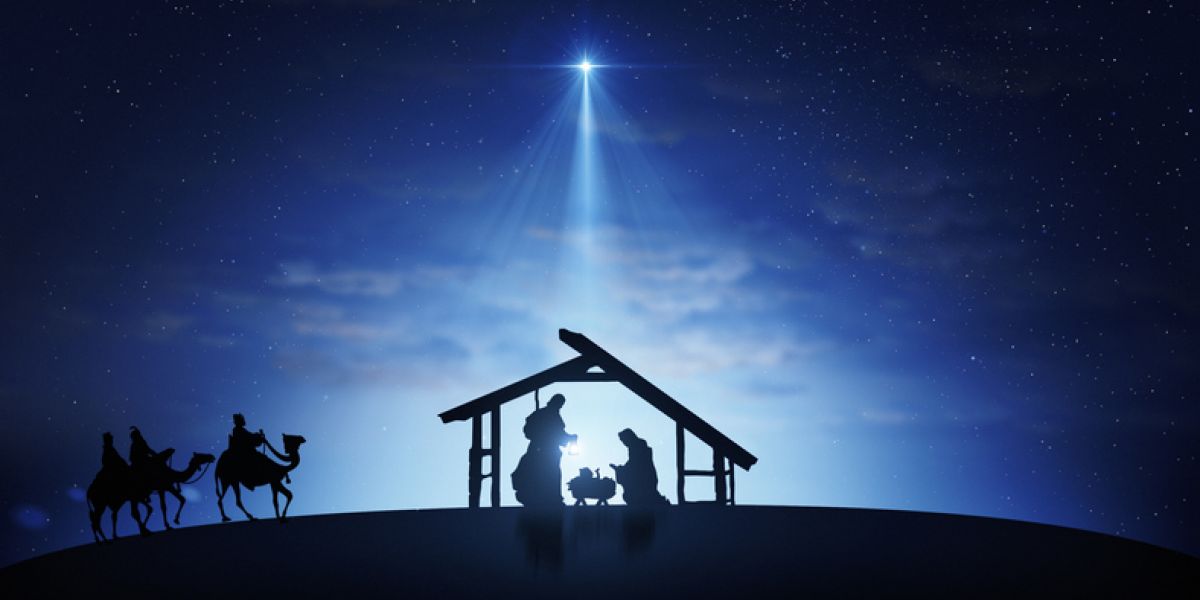First Thoughts

It Came Upon the Midnight Clear
Many of the most profound hymns of the faith were birthed from life’s most challenging circumstances. “It is Well with My Soul” was written in the throes of the sudden and tragic death of all the author’s children. “Precious Lord, Take My Hand” was written upon the death of a spouse. “Just as I Am” was written by a bedridden invalid, and “To God Be the Glory” by a blind poet. Trials are the wellspring of profound proclamations of hope.
Christmas of 1849 saw the nation stumbling out of the recently ended Mexican-American War and marching toward an inevitable Civil War with increasing strife between the North and South. Europe also was experiencing an ongoing revolution and political unrest. The thoughts of “Peace on Earth” were far from the reality of most inhabitants of the mid-19th century world. War seemed to loom on every front.
While we understand that the angel’s message to the shepherds that night regards eternal spiritual peace with God, Edmund Hamilton Sears (1810–1876) longed for an earthly demonstration of this proclamation. As a prize-winning poet and Harvard-trained minister, Sears sat down to write a poem that December based upon Luke 2 for his people at the First Congregational Church in Wayland, Massachusetts. He was fixated on the proclamation of the angels–“Peace on earth, good will to men.”
Unlike most Christmas carols in the hymnbook, this song never mentions the nativity. There is no mention of the manger, Mary and Joseph, the shepherds, or the star. There is not even a mention of the baby Jesus, but simply the message he was born to secure. With poetical stylings that are unmatched by most carols, the first verse recreates the night the angels sang:
It came upon the midnight clear, that glorious song of old,
From angels bending near the earth to touch their harps of gold:
“Peace on the earth, good will to men, from heaven’s all-gracious King.”
The world in solemn stillness lay, to hear the angels sing.
The second verse makes a transition from the residents of 1st century Bethlehem to the residents of 19th century New England and beyond. What “solemn stillness” does the world now still lie in that aches for the reality of the angel’s song? This world maintains its solemn groaning for the fulfillment of that angelic promise. Sears points us to our present need as if the angels are still singing their hope-filled decree:
Still through the cloven skies they come with peaceful wings unfurled,
And still their heavenly music floats o’er all the weary world;
Above its sad and lowly plains, they bend on hovering wing,
And ever o’er its Babel sounds the blessed angels sing.
Verse three is evocative of the most personal application that this hymn offers us. The weight of civil unrest and violent war is not laid upon nations but upon their residents. People are brought low by the fear of strife, and they are the ones who are the beneficiaries of peace. As long as peace is delayed, the burden grows heavier. But the angels bring hope, and Sears means for us to pause and listen to their song:
And ye, beneath life’s crushing load, whose forms are bending low,
Who toil along the climbing way with painful steps and slow,
Look now! For glad and golden hours come swiftly on the wing.
O rest beside the weary road, and hear the angels sing!
The final verse is a point of resolution and resignation with the current state of the world. The peace has not yet been realized on earth. Here we are almost two centuries from Sears, and we still have wars and rumors of wars. This is where we must differ with him on the matter. His theological underpinnings seem to confine his view to a temporal peace where many similar social messages of religion reside. As Jesus’ disciples initially did, Sears seems to be looking for a peaceful kingdom on this earth now, not the invisible kingdom that is breaking in and yet to come. But with faith-filled eyes, we can see the greater glory of the angel’s promise.
For lo! The days are hastening on, by prophet seen of old,
When with the ever-circling years shall come the time foretold
When peace shall over all the earth its ancient splendors fling,
And the whole world send back the song which now the angels sing.
We must borrow Sears’ words this Christmas and use them in a way that he may not have foreseen or fully understood. One day “every knee will bow and every tongue will confess that ‘Jesus is Lord’ to the glory of God the father.” That will be the day of peace finally realized. That will be the angel’s song finally fulfilled. Until then, we sing in hopeful expectation.
Scott Connell (Ph.D., The Southern Baptist Theological Seminary) is the Worship Pastor at First Baptist Church Jacksonville.
Share this
Search
Subscribe Via Email
Enter your email address to subscribe to this blog and receive notifications of new posts by email.
